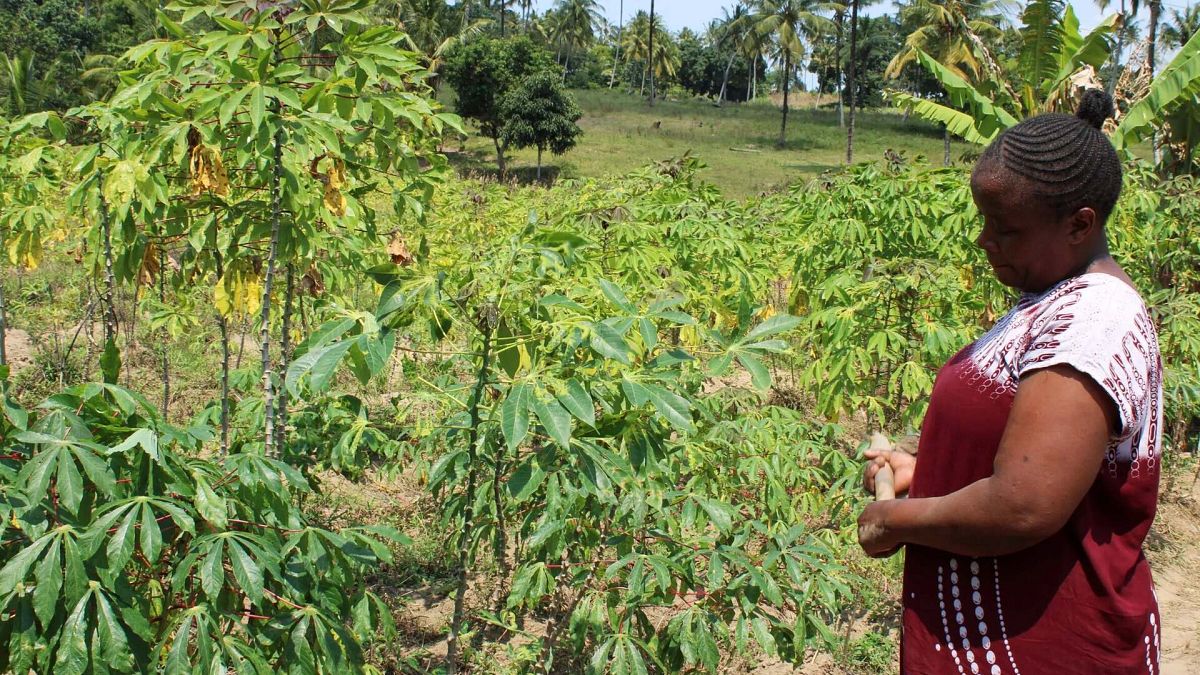Across rural Kenya, extreme heat, failed rains and unpredictable seasons are doing more than devastating harvests. They’re taking a psychological toll.
In Kaloleni, one of the country’s poorest areas, researchers are uncovering how climate change is driving anxiety, depression and suicidal thoughts, particularly among women who shoulder the burden of keeping their families fed.
Here, homes are mostly built of mud and have no indoor plumbing, and during hot spells and droughts, the region’s all-important maize crops wither.
“These communities are struggling to grow their crops and have to spend money on food,” said Zul Merali from The Aga Khan University, who has set up a local institute for mental and brain health. “This creates a lot of pressure, particularly on women, because they are in charge of making sure that kids and families are fed.”
The human toll of climate stress
This farming community is one of the most studied populations in Kenya.
A network of community health workers visits all households every month to check how people are doing. They fill in questionnaires that the government uses to understand needs in rural communities.
Humphrey Kitsao is a community health promoter who looks after 115 households in Kilifi County totalling 532 people. He’s done this work for 18 years and says he’s seen a lot of change.
“People here still farm, but their income isn’t like before,” he told The Associated Press. “They have to spend a lot of money on their farms, but often there is no harvest.”
Jasmit Shah is a data scientist at The Aga Khan University’s Brain and Mind Institute who wanted to research the impact of climate change on the mental health of women in Kenya’s rural farming communities. While climate anxiety has been studied in the United States and Europe, no study on mental health had been done with women in this region.
The university was already supporting Kenya’s government in its data collection in Kilifi County. For its own research on mental health and climate change, it only had to add some questions.
“The questions are quantitative: Do you have any suicidal thoughts, and if you do, do you have them every day, several days a week, a few times a month?” Shah said.
“Then we asked them a set of about 15 questions related to climate shocks and looked at the correlation between climate shocks and people saying that they are having suicidal thoughts.”
Shah said the survey of nearly 15,000 women produced some concerning signs. For example, he said, it appears that droughts and heat waves are linked with much higher levels of suicidal thoughts.
Climate change is causing anxieties around the world
The links between climate change and mental health are becoming increasingly clear around the world.
In Europe, researchers have found that long-term exposure to cold led to anxiety, depression and other issues among adolescents and young adults in the Netherlands. Higher heat in Spain, on the other hand, has been tied to attention problems.
In rural areas, especially in developing regions, the effects are often more tangible.
Earlier this year, researchers revealed that climate change is causing a mental health crisis among adolescents in Madagascar, where fears of food insecurity and futures stolen by droughts and storms have led to spikes in anxiety and depression in rural areas.
In Kaloleni, Kenya, 41-year-old farmer and mother of four Elizabeth Amina Kadenge said her maize harvest had been wiped out by drought at the time of the study. This year, it was wiped out again – by too much rain.
“It has been very stressful because farming is also my business,” Kadenge said. “When I farm the way I know, some of my maize is for food, and some of it is for my business. But if it fails, I have no food and no business.”
Kadenge has addressed her anxiety around the unreliable weather by switching to planting cassava, which is less fickle. But maize takes three months from planting to harvest. Cassava takes a year. If the family is hungry, they must uproot it before it’s big enough to sell and use it for food “because we have no other option.”
Breaking the silence on mental health
With such serious problems in rural Kenya, mental health often isn’t a priority. “We don’t talk about it a lot, not only in that community, but everywhere,” Shah said.
Mercy Githara is the mental health and psychosocial manager at the Kenya Red Cross. In her experience, the mental fallout from droughts or floods is very real.
“There is a lot of psychological distress among these communities, and some of them have developed mental health conditions such as depression,” she said.
She wants to see a greater emphasis on mental health. “Ensure that communities that are facing climate change can be able to access mental health services,” she said.
Shah is hopeful it’s already starting to happen. He noted the government’s community health promoters’ program across Kenya and the mental health training for participants. “So if they see a problem with a certain household or individual, they can refer them to a facility where they can be seen by a health professional.”
Such support could be needed for the long run.
“Climate change is not going to be a short-term thing,” Merali said. “It’s here to stay.”

